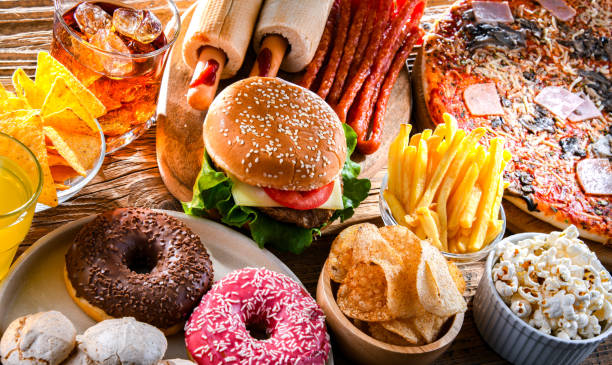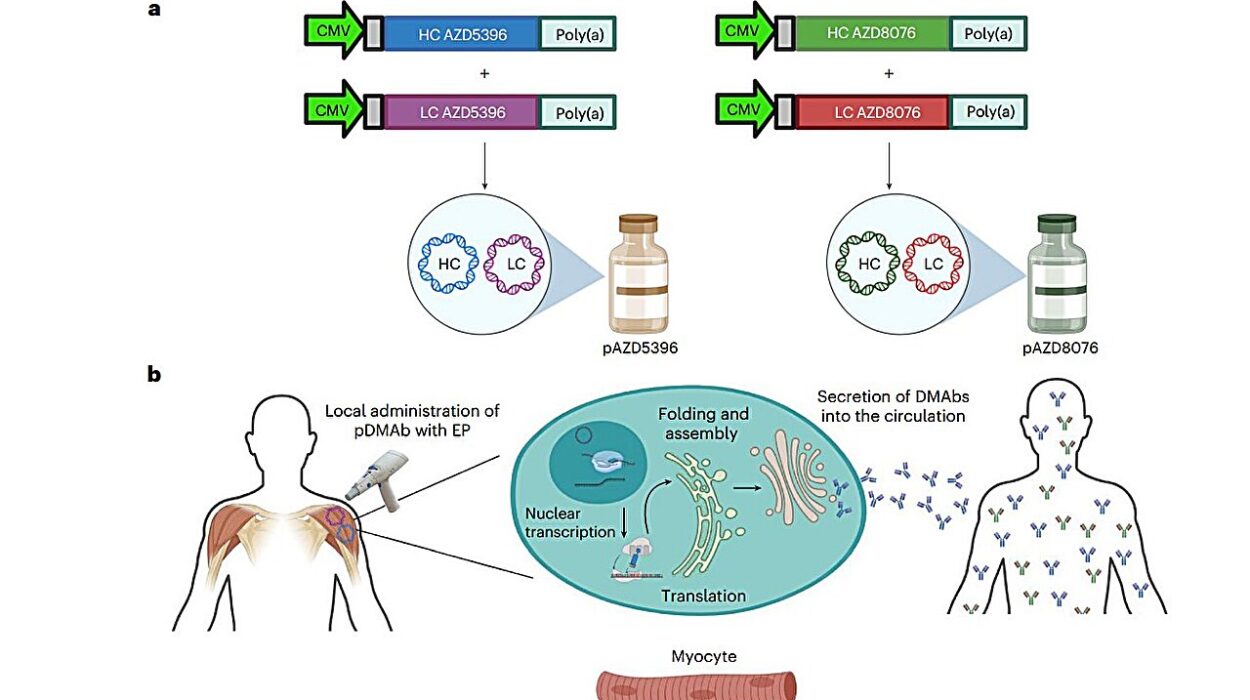In a world dominated by convenience, a silent threat may be gnawing away at the very thing that makes us human—our brains. A sweeping new study, published in Neurology, has revealed an unsettling truth: diets high in ultra-processed foods (UPFs) are strongly associated with an increased risk of both stroke and cognitive decline in adults. Crucially, these risks persist even among those who otherwise follow high-quality diets like the Mediterranean or DASH plans.
This finding challenges longstanding assumptions in nutritional science. For decades, diet quality has been measured by the presence of fruits, vegetables, whole grains, and lean proteins. But this study suggests there’s another dimension to brain health—how much our food has been altered from its natural state.
Peeling Back the Package: What Are Ultra-Processed Foods?
Ultra-processed foods are more than just “junk food.” They are industrial creations engineered for maximum shelf life, convenience, and hyper-palatability. Think beyond sugary sodas and potato chips—this category includes processed meats like sausages, ready-to-eat meals, energy bars, flavored yogurts, and even some types of bread and breakfast cereals.
What sets them apart isn’t just their nutritional profile but the industrial techniques and ingredients used to make them: chemical emulsifiers, artificial flavors, colorants, preservatives, and stabilizers—substances rarely found in a home kitchen.
In the United States, these foods account for more than 60% of the average adult’s caloric intake. That’s not just a dietary trend; it’s a cultural and economic transformation. And now, we may be beginning to understand the neurological costs.
Rethinking Diet Quality: More Than Fruits and Veggies
The new study was led by Dr. W. Taylor Kimberly, a neurologist at Massachusetts General Hospital and Harvard Medical School. It was designed to answer a deceptively simple question: is food processing itself harmful to the brain, beyond the usual suspects like saturated fat, salt, and sugar?
To answer that, Kimberly and colleagues turned to the REasons for Geographic and Racial Differences in Stroke (REGARDS) project, one of the largest ongoing studies of stroke in the U.S. Encompassing over 30,000 adults across racial and regional lines, REGARDS provides a uniquely powerful lens to observe long-term health outcomes.
What made this study stand out was its granularity. Researchers didn’t just look at what people ate; they categorized foods according to the NOVA system, which classifies them by degree of processing. NOVA1 foods—such as fresh produce, legumes, and whole grains—are unprocessed or minimally processed. NOVA4 foods, the ultra-processed category, are the most industrially transformed.
Two distinct groups were studied over time: one to assess cognitive impairment (14,175 participants), and another to track stroke incidence (20,243 participants). These groups were carefully selected to include only individuals free of these conditions at the study’s start.
The Unseen Threat: What the Numbers Reveal
The results were striking—and alarming. For every 10% increase in the proportion of ultra-processed food in the diet by weight, the risk of cognitive impairment rose by 16%, and the risk of stroke rose by 8%. These associations held firm even after controlling for numerous lifestyle and health factors, including age, race, education, physical activity, income, blood pressure, diabetes, smoking, depression, and alcohol consumption.
Even more telling, the risks associated with UPFs remained significant even among individuals who followed healthy diets like the Mediterranean, DASH, or MIND plans. This means that the act of consuming ultra-processed foods introduces a separate and additive risk to brain health—regardless of how many vegetables you eat or how low your sodium intake is.
On the flip side, people who consumed a higher proportion of unprocessed or minimally processed foods saw their risk of stroke fall by 12%, with similar trends in cognitive health.
A Double Burden: Disparities in Risk
One of the most troubling findings was that the stroke risk associated with UPFs was higher for Black participants than for White participants. Though the reasons remain unclear, the disparity may reflect broader issues in healthcare access, systemic racism, economic inequality, or variations in food environments.
While cognitive decline did not show the same racial disparity, the racial difference in stroke outcomes underscores the importance of understanding how social determinants of health intersect with diet and biology.
What Makes Ultra-Processed Foods So Harmful?
The question that looms large is: why? What is it about UPFs that harms the brain?
Scientists have a few plausible theories. First, UPFs are often low in fiber and essential nutrients while being high in refined carbohydrates and unhealthy fats. This nutritional imbalance may contribute to inflammation, insulin resistance, and vascular dysfunction—all known contributors to cognitive decline and stroke.
Second, many UPFs contain additives like emulsifiers and artificial sweeteners that may disrupt gut microbiota, leading to a condition known as “leaky gut”—a breakdown in the intestinal barrier that can increase systemic inflammation and possibly affect the blood-brain barrier.
Third, high consumption of UPFs may indirectly influence brain health through other pathways: increased blood pressure, weight gain, glucose dysregulation, and even depression. Each of these is a known risk factor for stroke and cognitive impairment.
Not Just What You Eat—But How It’s Made
The most profound insight from the study is that processing matters. Two identical foods in terms of macronutrients—say, a homemade soup and a canned soup—may have vastly different health implications depending on how they’re made and preserved.
This reorients the focus of public health from simply urging people to eat “better” foods to considering how those foods are produced. Traditional food classification systems have lumped together processed and unprocessed items if they share the same basic nutrients. But this study shows that such grouping may overlook an important part of the health equation.
A Hopeful Message: Small Changes, Big Payoffs
One of the most empowering findings in the study is that even modest reductions in UPF intake can yield significant benefits. Swapping just one or two ultra-processed meals per week for meals made from fresh or minimally processed ingredients could reduce the risk of stroke and cognitive decline in a measurable way.
That’s a hopeful message in a sea of bad dietary news. We don’t need to be perfect. We just need to start shifting in the right direction.
The Limitations—and the Road Ahead
It’s important to note that this was an observational study. It establishes correlation, not causation. The authors are cautious not to overstate their findings. Self-reported dietary data can be inaccurate. Food processing classification systems like NOVA are still evolving and can be somewhat imprecise.
Yet the strength and consistency of the associations found, across two major neurological outcomes, make this study hard to ignore.
Researchers are now working to determine whether changes in diet during the follow-up period were associated with corresponding changes in risk. While this doesn’t replace randomized clinical trials, it could add valuable insight into whether dietary change mid-life can alter brain health trajectories.
Longer-term, the goal is to identify which specific ultra-processed foods are most harmful. Not all UPFs are created equal. Some may pose greater risks than others, and understanding these distinctions will allow for more refined policy recommendations.
Rethinking Food Policy in the Age of UPFs
Public health guidelines have long focused on nutrients: reduce saturated fat, lower sodium, increase fiber. But if processing itself has independent effects on brain health, new metrics and frameworks are needed.
Food labeling could be redesigned to account for processing level. Tax incentives or subsidies might encourage fresh food production and reduce the economic pressures that lead manufacturers to favor ultra-processed products.
In an ideal future, convenience won’t have to come at the cost of cognition. Innovation in food science—driven by evidence, not industry—may hold the key to bridging this gap.
Final Thoughts: Feeding Our Future Minds
The findings of this study are a wake-up call—not just for individuals but for the systems that shape our food supply. They challenge us to look beyond calories, vitamins, and portion sizes, and instead ask deeper questions about the very nature of what we’re putting into our bodies.
Food isn’t just fuel. It’s information. It tells our cells how to function, our genes how to express themselves, and our brains how to age. If ultra-processed foods are whispering the wrong messages into our biology, then understanding—and changing—those signals becomes one of the great public health challenges of our time.
The brain, after all, is the most processed organ we have. Perhaps it’s time we fed it more simply.






